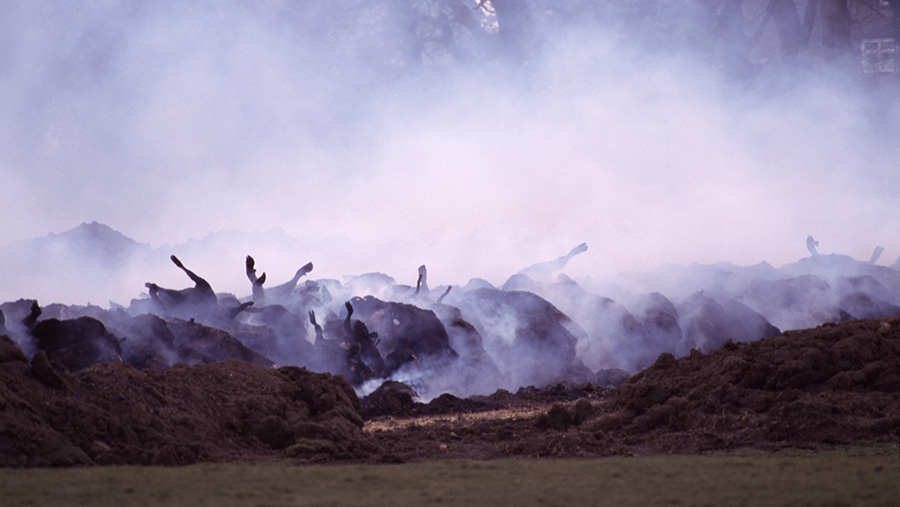FW Opinion: Are 2001 foot-and-mouth outbreak lessons fading?
 © Science Photo Library
© Science Photo Library This week marks the 20th anniversary of the beginning of the 2001 outbreak of foot-and-mouth disease.
I was just 12 years old, growing up on our family beef and sheep farm, but I remember the blanket of anxiety and fear that hung over the everyday routine, the worry that every limp of a cow or sheep could be the first sign of disaster.
While we avoided the disease, others in our parish did not and we narrowly escaped the horror suffered by many of seeing healthy livestock killed by contiguous culling.
See also: Analysis: How good are foot-and-mouth controls 20 years on?
About the author
 Andrew Meredith
Andrew Meredith
Editor, Farmers Weekly
Contact:
E: andrew.meredith@markallengroup.com
T: @Merry_Meredith
Read more articles by Andrew Meredith
Six million cattle, sheep and pigs had been slaughtered by the time the last case was identified in September of the same year, and the outbreak cost the public sector £3bn and the private sector £5bn.
Politicians are fond of swearing at the end of every catastrophe that lessons will be learned in order to prevent terrible events recurring.
Rules that still persist to this day grew out of that crisis to ensure that animal movements can be more accurately traced, as well as other legislation around the usage of waste food for animal feed.
But as our analysis this week of the government’s preparedness for another outbreak shows, experts are concerned that there are still holes in our defences.
Concerns have been repeatedly raised in recent years about the rigour of inspection and testing of animal products coming from overseas, vital safeguards against a host of diseases such as African swine fever and foot-and-mouth.
Controlling the spread of a disease by increasing controls of how goods and people enter the country is, of course, a lively topic today in the context of the coronavirus pandemic and Brexit.
John M Barry is the author of The Great Influenza, a history of how the Spanish flu swept large parts of the globe shortly after the end of First World War.
Speaking on a recent Politico podcast about the parallels between that outbreak and the current Covid-19 pandemic, he gloomily quoted Hegel by saying: “What we learn from history is that we learn nothing from history”.
Indeed, during the 2001 foot-and-mouth epidemic a report was unearthed from an official inquiry into the 1969 episode, carried out by the Duke of Northumberland.
As Private Eye pointed out afterwards: “It was as if every one of Northumberland’s central recommendations, derived from an exhaustive public inquiry and published only a year after the epidemic ended, had been not just ignored, but stood on its head.”
If there is anything good to come out of the coronavirus crisis then hopefully it will be a renewed appreciation of the threat of disease.
It should underline the importance of sustained investment at every level in disease research, surveillance and contingency planning – things that seem easy to cut when other short-term priorities rear their heads.
And we should not be afraid to continue to revisit even the most troubling events of the past to attempt to learn from them – however hard it is to preserve those lessons.
Many questions about the 2001 foot-and-mouth outbreak remain unanswered. Next year there may be new insight into those dark days as the National Archives begins to release government documents from that era under the 20-year rule.
There could be information to support the many allegations of wrongdoing that persist from that period.
If you have information that would help shape an investigation into those documents, then please email me at the address above.
